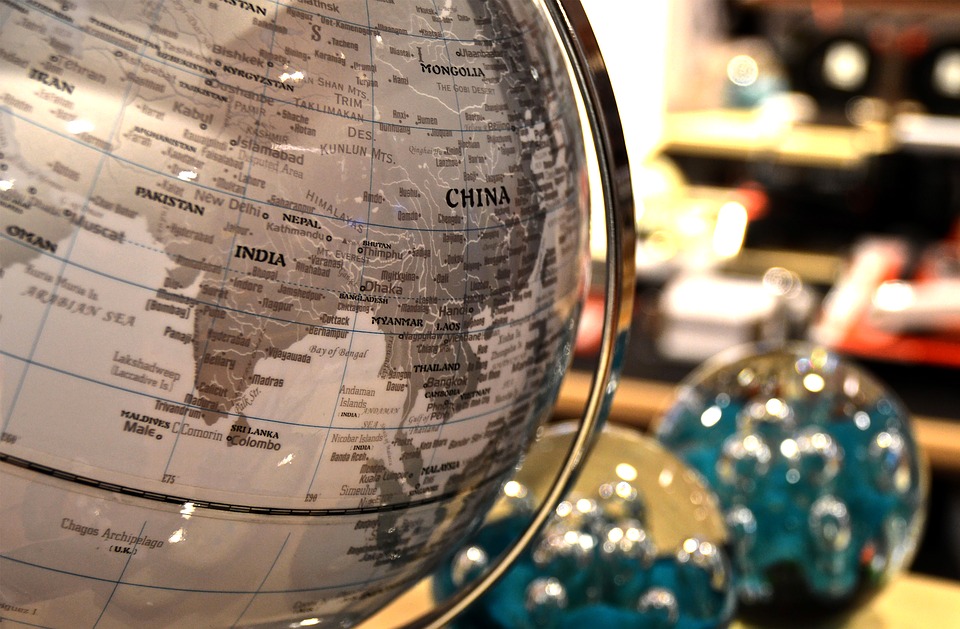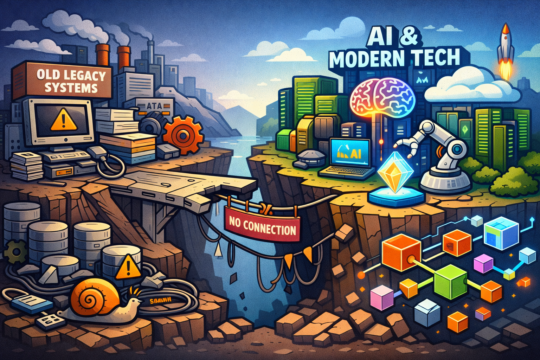As India, along with several other countries, reel under US tariff pressures, how will it impact economics and the tech business sector? Could the global business alignment change completely as a result of these tariffs?
Recently, some of the world’s top tech firms, including search giant Alphabet, chipmaker SK Hynix and IT services provider Infosys, provided upbeat guidance in their latest earnings reports, shrugging off the uncertain US trade policy.
AppsFlyer’s 2025 State of eCommerce App Marketing report reveals a major realignment in global mobile growth strategy, with China-based eCommerce apps, now responsible for 85% of worldwide iOS UA spend shifting budgets from the US to Western Europe in response to tariff and regulatory uncertainty. In Germany, iOS UA jumped 170% YoY in Jan-May 2025 and in France, it more than doubled, highlighting the rising importance of flexible, regionally tailored strategies in an unpredictable market environment.
“This reallocation signals a broader transformation in mobile growth, shaped by tariff uncertainty, regional platform dynamics, and increasing reliance on loyalty-focused remarketing.” — Sue Azari, Industry Lead for eCommerce, AppsFlyer
“This reallocation signals a broader transformation in mobile growth, shaped by tariff uncertainty, regional platform dynamics, and increasing reliance on loyalty-focused remarketing,” said Sue Azari, Industry Lead for eCommerce at AppsFlyer.
“With the possibility of regulatory or geopolitical shifts ahead, marketers must be ready to adapt quickly. Brands are now making real-time decisions about where to invest based on regulatory environments, user lifetime value, and competitive positioning across multiple continents.”
In India, iOS in-app purchase revenue surged 44% year-over-year in November 2024, with sustained growth of 31% from January to May 2025, while remarketing spend reached $447 million in early 2025, with 99.7% originating from India-based apps, highlighting strong domestic user retention focus. Also, iOS user acquisition grew 70% year-over-year in November, while Android increased 24%.
Strange things have been happening. Recently, media reported an upward trend in India-China relations even as Beijing promised to address New Delhi’s needs on rare earths, as per Reuters. It looks like a rebuilding of ties that damaged by the 2020 border clash.
Could this be a consequence of US tariffs?
Meanwhile, US-based multinational brands like McDonald’s, Coca-Cola, Amazon, and Apple are facing calls for a boycott in India as business executives and Indian Prime Minister Narendra Modi supporters stoke anti-American sentiment to protest against US tariffs. Recently, Modi urged the country to move towards more self-reliance, towards manufacturing everything including fertilizers, jet engines, and EV batteries. He also vowed to protect farmers in the face of a trade conflict with Washington.
The Long-Term Effects of a Shifting Global Landscape
Reports are also saying that companies are starting to plan for the long-term effects of a shifting global landscape, even as they brace for continued rates volatility and potential supply chain reconfigurations in the near term. A DBS report titled New Realities, New Possibilities surveyed 800 finance leaders, including Chief Financial officers (CFOs) and corporate treasurers, across seven sectors and 14 markets, showing that businesses are recalibrating their long-term strategies to strengthen financial resilience over the next five years.
As per the report, 79% of financial leaders from India believe that Generative AI and associated tools are a solution to modernize treasury operations and drive efficiency at scale. 80% of India CFOs and treasurers believe sustainable trade finance solutions will support green initiatives and compliance with green standards.
“The new reality is increasingly being defined by uncertainty, and within this context a discernible shift is underway for treasury and finance leaders who are not only strategic enablers for their companies, but also managers of business risk.” –Divyesh Dalal, Managing Director and Head, Global Transaction Services, SME & Financial Institutional Group, DBS Bank India
Divyesh Dalal, Managing Director and Head, Global Transaction Services, SME & Financial Institutional Group, DBS Bank India, said, “The new reality is increasingly being defined by uncertainty, and within this context a discernible shift is underway for treasury and finance leaders who are not only strategic enablers for their companies, but also managers of business risk. As the world looks to India to drive future growth, these leaders are assuming enhanced responsibilities as they step up to guide business diversification and linked capital allocation along with building resilient supply chains while keeping their overall institutional ESG principles in mind.”
“Businesses are grappling with the confluence of several larger trends which are accelerating simultaneously – the ubiquity of AI, climate change, geopolitical uncertainty and evolving trade complexities. As financial strategists, the treasury function is proactively looking to modernise as they integrate multiple agendas to unlock smarter, more sustainable growth.” — Santanu Mitra, Managing Director & Country Head, Corporate Banking (Large and Midcap), DBS Bank India
Santanu Mitra, Managing Director & Country Head, Corporate Banking (Large and Midcap), DBS Bank India, added, “Businesses are grappling with the confluence of several larger trends which are accelerating simultaneously – the ubiquity of AI, climate change, geopolitical uncertainty and evolving trade complexities. As financial strategists, the treasury function is proactively looking to modernise as they integrate multiple agendas to unlock smarter, more sustainable growth.”
Russian Oil Spills
Trump has been threatening India with higher tariffs over its Russian oil purchases, following up on earlier remarks about penalizing anyone who purchased oil from Russia. India was hit by a surprise tariff rate recently.
Overnight, the US-India trade equation shifted from tense to turbulent. President Trump’s sudden announcement of a 25% tariff on Indian goods, alongside an opaque “penalty” linked to India’s Russian oil imports, feels less like structured policy and more like a blunt-force political message. For Indian exporters in gems, textiles, and auto parts, the impact is immediate and harsh; sectors already operating on slim margins now face a 7–10% cost disadvantage compared to rivals like Vietnam.
As Kirit Bhansali of the Gem & Jewellery Export Promotion Council put it plainly, “This threatens $10 billion in exports and millions of jobs.”
The move, which is clearly geopolitical pressure, has economists warning of collateral damage. ICRA’s Aditi Nayar estimates the tariffs could result in a 0.5% drag on GDP, around USD$30 B, if they persist. While the pharma sector has been spared for now, marine exports and electronics are feeling the heat. With the rupee under strain, RBI intervention appears increasingly likely.
The August 25 trade talks have been called off, the fate of US-India business deal hanging.
As one Indian negotiator quietly remarked, “This isn’t about tariffs anymore. It’s about whether two strong leaders can step back without losing face.”
“The trade deal with USA, one of our biggest trading partners, involves navigating negotiations since there are various sensitive issues like GM crops, imports of dairy products etc., which are important for the Indian economy. Unless there is an agreement on safeguarding India’s interest on these issues as well as other similar issues such as bilateral agreement on digital services tax, stand for continuation for moratorium on customs duty on digital transmissions etc, such a deal may impact India’s interests, and we would need to carefully assess the imperative of any such trade deal,” said Munjal Almoula, Head of tax, BDO India.
As US tariffs ripple across economies, India and other nations are caught in the crossfire. From Alphabet and Infosys brushing off uncertainty to Chinese eCommerce apps rerouting budgets to Europe, the realignment of global tech and trade is accelerating. The tariff effect is no longer hypothetical; it’s reshaping strategies in real time.












